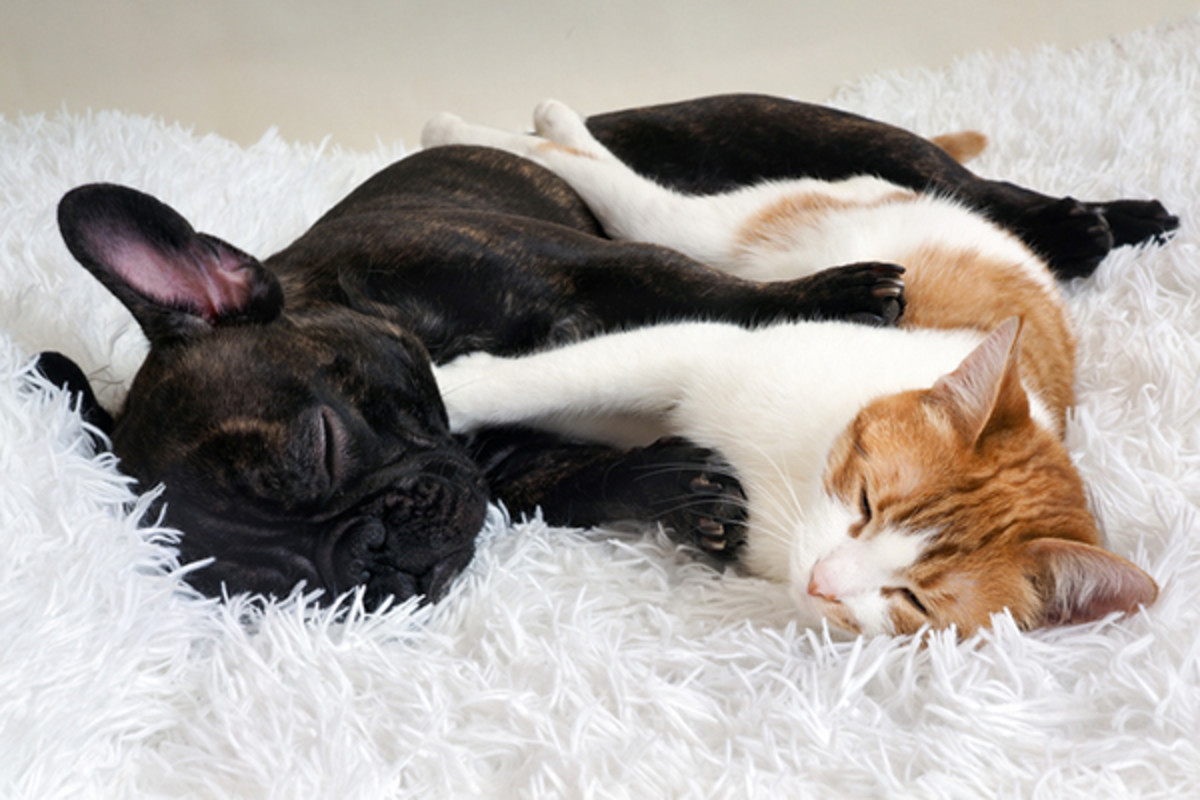Powerful Pets: They can sense the presence of Covid-19
Superior Senses allow your pets to Sense the Presence of Corona-Virus
Humans and animals share many similarities and differences. Often times when dealing with senses, the differences are obvious. Dogs for example, can Sense Fear. Experts in behavioral sciences have mapped out certain displays in humans showing fear, that are in a humans eyes, impossible to see without fancy equipment. However, to your dog, they are obvious cries for help!

How to Tell if your Pet Senses Something is wrong
Although, well for the most part, pets cannot speak the English language, they do have their own unique of way communicating with you that something is wrong. Don't expect your pet to act like Lassy, and try to tell you someone is "Stuck in the well". Instead, use the tips below to put together an idea of what your loved one is sensing.
Tips to identify what your pet is sensing:
- Compare their current behavior to past behavior
- Find some quiet time to reflect on what's going on inside of you
- Pay attention to changes in bathroom breaks, diet, and activity levels
- Ask a behavioral specialist! - Some behaviors are dead giveaways, consult with Google, or your vet, and they might have the answer for you!
Your Stress could be hurting your pet!
When dog owners go through a stressful period, they're not alone in feeling the pressure — their dogs feel it too, a new study suggests. Dog owners experiencing long bouts of stress can transfer it to their dogs, scientists report in a study published Thursday in Scientific Reports.
From Experience
During my time in undergrad, I was fortunate enough to register for a class titled, "Animal Physiology" which compared human and animal diseases. We conducted research on diseases that affected animals and humans in a similar manner. For example, did you know that Koala Bears often are diagnosed with Syphilis!
Our health and the health of our loved one's should be top priority. One way to ensure your pet is in good health, is to be in good health yourself.
With the ability of pets to pick up on our stress, and carry a similar demeanor, they enter a high risk for developing stress related diseases.
There are several types of disorders that can be initiated by stress, including:
Cardiovascular issues - Chronic stress causes the adrenal glands to release excessive amounts of the hormone cortisol, elevating the blood pressure and stressing the heart
Eating disorders - Dogs, like humans, may react to stress by changing their eating habits and some dogs may overeat when subjected to stressful situations while others experience a lack of appetite; stress is also known to lower blood sugar which can occasionally trigger diabetes to develop Gastrointestinal distress - One of the most common physical reactions to stress for canines is digestive upset; this can take the form of vomiting but is most often seen as diarrhea Immune system suppression -
When an animal is exposed to prolonged stress the immune system is also suppressed by the cortisol, making them more susceptible to illness Slowed healing -
Chronic stress has also been shown to slow tissue regeneration as well, lengthening the time it takes to for the body to heal from injuries or wounds.
Putting my degree in health to good use, I urge you to examine your own life, and determine if you are passing stress down to your pets. With all hysteria going on in the worl right now, it is of the utmost importance to take care of yourself and your pets!
Signs and Symptoms your pet is stressed
Cowering
| Escape Behaviors
| exaggerating yawning
| Excessive Appetite
|
Heavy Panting
| Excessive Shedding
| Ignoring Commands
| Lip Tension
|
Loss of Appetite
| Tail tucked under
| Timidity
| Trembling
|
If you see any of these signs, your pet could be stressed!

Corona-Virus, Stress, and You
By now should understand that humans become stressed because of events that happen in life. The stress results in behavior changes in humans that are almost impossible to determine without scientific research. This stress is picked up by your pets super powered senses, and results in them becoming stressed out. A stressed out pet is then more susceptible to diseases.
Mental health advocates say it’s good to stress less in this time of COVID-19 anxiety
It is obvious that people are more stressed out then ever with news of the corona virus, http://www.coronavirusworldnews.live. With all of the uncertainty and risk to our health, how could we not be? As pet owner's, it is our responsibility to keep ourselves and our loved ones safe. Take the time to check in with them and yourself about how you are doing during these unprecedented times

10 ways to reduce stress:
- Eat and drink sensibly. Alcohol and food abuse may seem to reduce stress, but it actually adds to it.
- Assert yourself. You do not have to meet others' expectations or demands. It's okay to say "No." Remember, being assertive allows you to stand up for your rights and beliefs while respecting those of others.
- Stop smoking or other bad habits. Aside from the obvious health risks of cigarettes, nicotine acts as a stimulant and brings on more stress symptoms. Give yourself the gift of dropping unhealthy habits.
- Exercise regularly. Choose non-competitive exercise and set reasonable goals. Aerobic exercise has been shown to release endorphins (natural substances that help you feel better and maintain a positive attitude).
- Study and practice relaxation techniques. Relax every day. Choose from a variety of different techniques. Combine opposites; a time for deep relaxation and a time for aerobic exercise is a sure way to protect your body from the effects of stress.
- Take responsibility. Control what you can and leave behind what you cannot control.
- Reduce stressors (cause of stress). Many people find that life is filled with too many demands and too little time. For the most part, these demands are ones we have chosen. Effective time-management skills involve asking for help when appropriate, setting priorities, pacing yourself, and taking time out for yourself.
- Examine your values and live by them. The more your actions reflect your beliefs, the better you will feel, no matter how busy your life is. Use your values when choosing your activities.
- Set realistic goals and expectations. It's okay, and healthy, to realize you cannot be 100% successful at everything at once.
- Sell yourself to yourself. When you are feeling overwhelmed, remind yourself of what you do well. Have a healthy sense of self-esteem.



